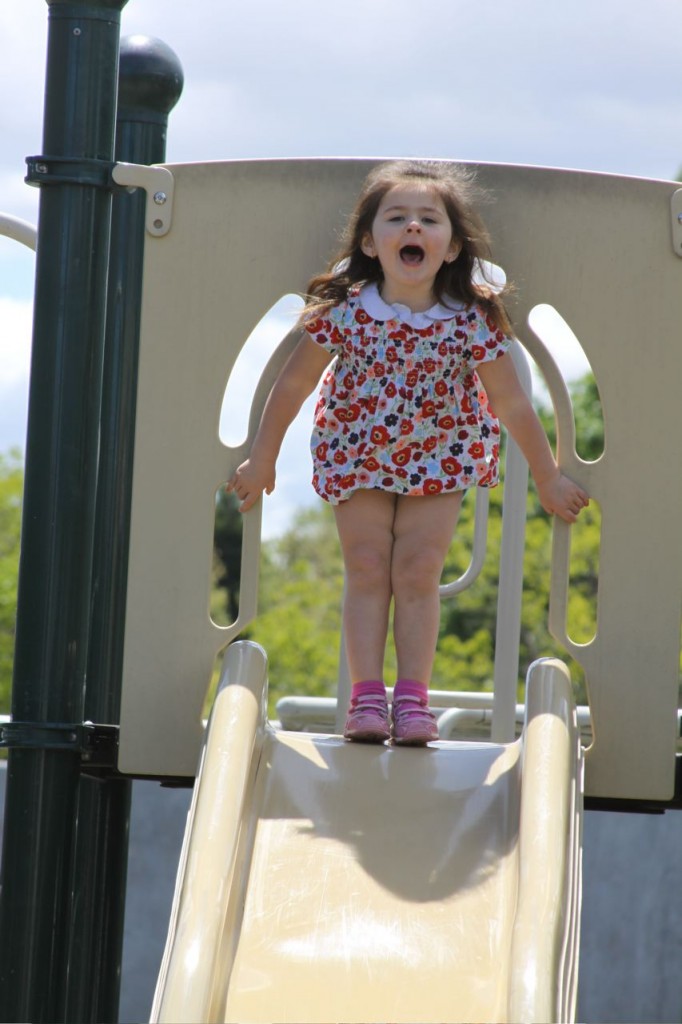 One lovely July evening we arrive at the local park to spend some energy before bedtime. There are two boys running around the play structure, chasing each other and screaming happily. My 4-year-old, who would normally attack the play structure upon arrival, stands to the side and watches.
One lovely July evening we arrive at the local park to spend some energy before bedtime. There are two boys running around the play structure, chasing each other and screaming happily. My 4-year-old, who would normally attack the play structure upon arrival, stands to the side and watches.
After a few minutes she announces: “Mama, I’m going to chase them! Because I love them!” And starts chasing the boys, who happily adopt the game.
Bobby and I smiled.
Were she a few years older, she would have said “like” instead of “love”, or maybe even skipped it altogether, but at 4, her social filters are not really yet in place, and she recognized what she was feeling as the most basic emotion she knows. Love.
And if you think about it, that’s really what it was. We might call it desire, inclination, liking, but it seems to me that all these words can pretty much boil down to the simplified emotion of love. Much like the urban legend that in Eskimo there are many different words for snow, when really they’re all just a variation on the same word.
I understand that in today’s society, we cannot admit, even to ourselves, that we might love so much. Using the word “love” can scare people off, or worse, cause them to misunderstand our emotions for something bigger than what we intend. So we say “I like you”, or “I like hanging out with you”, or nothing at all, and assume, sometimes wrongly, that our intended friend feels the same.
But perhaps the more interesting phenomenon is the complete reversal of our emotions in relation to the way we express them. In the past, I have told people toward whom I felt indifferent, or perhaps even disliked, that I loved something about them (their hair, something they said). This was probably a subconscious attempt to compensate for my negative feelings toward them. In the same room, or same group of people, I actively and consciously avoided telling somebody else that I was growing to love their company, and hoped to spend more time with them. Go figure.
Well, actually, I know why. It’s because I was afraid that if I told them I loved them, I would scare them off, and thus lose them. So not telling them anything meant that I had a better chance to hang out with them again. This strikes me as idiotic.
I would like to believe that I could learn from my daughter and start telling the truth… I would like to believe that I could learn to be more selective with my feelings and allow for love to grow instead of diving into it head first. I would like to believe that if an intended friend gets scared off by my love, they probably wouldn’t end up being my friend anyway.
Hey – I love you!
Will did a similar thing last night. We showed up at a student & families picnic and he made some friends. As we were heading off one of his little friends came up to give him a hug. I thought that was super cute. The best was when he held her shoulders, the girl he just met two hours ago, and said “I love you.” Then he hustled over to me to grab my hand before walking to the car.
Kids are great.